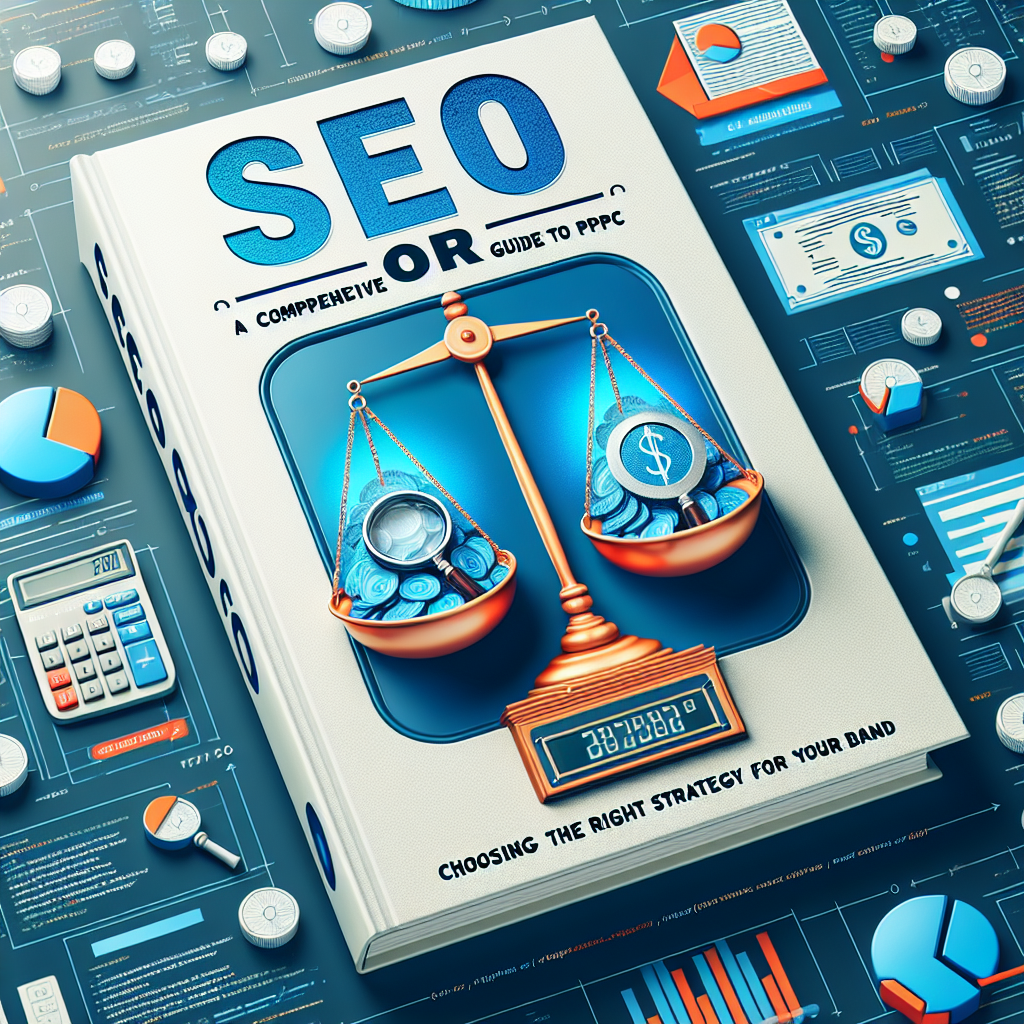In the vast world of digital marketing, two terms frequently dominate the conversation: Search Engine Optimization (SEO) and Pay-Per-Click (PPC) advertising. Both strategies serve the essential purpose of increasing online visibility and driving traffic to your website, but they do so in markedly different ways. Choosing the right approach for your brand can be a complex decision, but understanding the nuances of each can simplify the process. This comprehensive guide will break down both SEO and PPC, ultimately helping you identify which strategy aligns best with your business goals.
Understanding SEO: The Long Game
What is SEO?
Search Engine Optimization (SEO) is the art and science of enhancing your website’s visibility in organic (non-paid) search engine results. It’s a long-term strategy that involves optimizing various elements of your website, including content, keywords, technical structure, and backlinks, to rank higher in search engine results pages (SERPs).
Why Focus on SEO?
-
Cost-Effective: Unlike PPC, SEO doesn’t require a significant upfront investment. While it does require time and effort, the ongoing cost is relatively low after your website starts to rank well.
-
Trust and Credibility: Many users trust organic search results more than paid advertisements. A well-optimized website can help build brand credibility and authority.
- Sustainable Traffic: Once you achieve high rankings, you can enjoy a steady stream of traffic without continuously paying for ads.
The SEO Process
-
Keyword Research: Identify relevant keywords that your target audience is searching for. Use tools like Google Keyword Planner, Ahrefs, or SEMrush to find the right keywords for your niche.
-
On-Page Optimization: Ensure your content is valuable and incorporates the chosen keywords. Optimize meta tags, headers, and images for better visibility.
-
Technical SEO: This involves improving your website’s technical aspects, such as site speed, mobile-friendliness, and architectural structure.
- Link Building: Acquire high-quality backlinks from reputable sites to enhance your website’s authority and rankings.
Exploring PPC: Instant Gratification
What is PPC?
Pay-Per-Click (PPC) advertising is a digital marketing model where businesses pay for ads that appear in search engine results or on social media platforms. You only pay when someone clicks on your ad, making it a cost-effective method for generating immediate website traffic.
Benefits of PPC
-
Immediate Results: Unlike SEO, which can take months to show results, PPC can drive traffic to your website almost instantly after the ad is launched.
-
Targeted Audience: PPC platforms allow you to target specific demographics, locations, and interests, ensuring that your ads reach the right audience.
- Flexible Budgeting: With PPC, you have total control over your budget. You can adjust your spending at any time based on performance metrics.
The PPC Process
-
Defining Goals: Identify what you want to achieve with your PPC campaigns—be it sales, leads, or brand awareness.
-
Keyword Selection: Conduct thorough keyword research to find high-converting keywords that are relevant to your offerings.
-
Creating Compelling Ads: Write persuasive ad copy that grabs attention and entices users to click.
- Landing Page Optimization: Ensure that the landing page provides a seamless user experience and aligns with the ad’s offer to maximize conversion rates.
SEO vs. PPC: Which One Should You Choose?
Choosing between SEO and PPC ultimately depends on your business goals, budget, and timeline. Here are some scenarios to help you determine which strategy may be best for your brand:
When to Choose SEO
-
Long-Term Goals: If you’re looking to build a sustainable online presence and are prepared to invest time for long-term results, SEO is ideal.
-
Limited Budget: If you’re operating on a tight budget but can devote time to building content and optimizing your site, SEO is the way to go.
- Credibility Matters: If establishing trust and authority is crucial for your brand, organic search may be more effective.
When to Choose PPC
-
Immediate Need for Traffic: If you’re launching a new product or service and require quick visibility, PPC can help you achieve that immediately.
-
Test and Measure: If you want to test marketing messages or products quickly, PPC allows for rapid analysis and adjustment.
- Targeting Specific Audiences: If your target audience is well-defined and you want to reach them directly, PPC is highly effective for targeted campaigns.
Combining SEO and PPC: The Best of Both Worlds
The best strategy for many brands often involves a combination of both SEO and PPC. Using PPC can provide immediate results, while SEO works to build long-term traffic. This approach allows you to capitalize on the strengths of both strategies, leveraging PPC for immediate visibility while your SEO efforts mature and grow.
Conclusion
Deciding whether to invest in SEO, PPC, or both can feel daunting, but taking the time to evaluate your business goals, budget, and timeline can lead to an informed choice. Remember, effective digital marketing is about understanding your audience and providing them with the content and solutions they need at the right time. Whether you choose SEO, PPC, or a combination of both, the key is to remain adaptable and responsive to changing consumer behavior and market trends. Embrace the journey and let it lead your brand to success in the digital realm.


